
Cine Documental
Scope & Guideline
Connecting Theory and Practice in Documentary Filmmaking
Introduction
Aims and Scopes
- Exploration of Documentary Theory:
The journal delves into the theoretical frameworks that define and analyze documentary filmmaking, including narrative theories and the rhetorical strategies employed by filmmakers. - Cultural and Historical Contexts:
Cine Documental emphasizes the significance of cultural and historical contexts in shaping documentary narratives, as evident in studies of specific regional cinema, such as the Iberian Cinema of Austerity or Bolivian video history. - Ethnographic and Anthropological Approaches:
The journal highlights the role of ethnographic methods in documentary filmmaking, examining how these approaches contribute to the authenticity and representation of diverse cultures. - Impact of Documentary on Society:
The journal investigates the role of documentaries in societal transformation and memory, focusing on themes such as propaganda, revolution, and the representation of marginalized voices. - Interdisciplinary Dialogue:
Cine Documental fosters interdisciplinary dialogues between cinema studies, media studies, and other fields, encouraging a holistic understanding of documentary as a medium.
Trending and Emerging
- Subjectivity and Filmmaker Presence:
The presence of the filmmaker as a subjective element in documentaries is gaining traction, with discussions on how this influences narrative and audience engagement. - Documentary as a Tool for Social Change:
There is an increasing focus on documentaries as instruments for social change, particularly in relation to political movements, anti-imperialism, and cultural resistance. - Media Sustainability and Local Narratives:
Emerging themes point towards the sustainability of media practices and the importance of local narratives, as seen in studies of community-based documentary projects. - Interdisciplinary Approaches to Narratology:
The integration of narratology across various media forms, including cinema and video games, is becoming a significant area of interest, reflecting broader trends in media studies. - Ethnographic Documentaries:
There is a rising interest in ethnographic documentaries that explore cultural narratives and experiences, highlighting the importance of authenticity and representation.
Declining or Waning
- Traditional Historical Narratives:
There seems to be a waning interest in conventional historical narratives within documentaries. Recent papers focus more on contemporary issues and experimental approaches rather than strictly historical documentation. - Purely Aesthetic Analyses:
The journal has shifted away from discussions centered solely on the aesthetics of documentary filmmaking, favoring instead analyses that incorporate social and political implications. - Focus on Mainstream Documentary Practices:
There is a noticeable decline in the exploration of mainstream documentary practices, with a greater emphasis on independent, experimental, and ethnographic documentaries.
Similar Journals
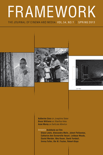
Framework-The Journal of Cinema and Media
Unveiling critical insights in media culture.Framework: The Journal of Cinema and Media is a prominent academic journal published by Wayne State University Press, focusing on the dynamic fields of cinema studies and media theory. With an ISSN of 0306-7661 and an E-ISSN of 1559-7989, it serves as a key platform for researchers, professionals, and students to explore critical issues in media culture, film theory, and the intersection of digital technologies and narrative. Although it does not currently offer open access, the journal maintains a reputation for rigorous scholarship and thought-provoking content, providing insights that challenge conventional understandings of media and its impact on society. Published in Detroit, MI, Framework continues to engage with contemporary debates and innovative practices in cinema and media, making it an essential resource for those dedicated to advancing research in these vibrant disciplines.

Studies in Documentary Film
Elevating the Dialogue on Documentary ArtsStudies in Documentary Film is a prominent academic journal published by Routledge Journals, Taylor & Francis Ltd that delves into the rich intersection of documentary filmmaking and critical academic discourse. With an ISSN of 1750-3280 and an E-ISSN of 1750-3299, this journal has emerged as a key resource for researchers, professionals, and students interested in the impact and evolution of documentary forms in contemporary culture. Recognized within the top tier of journals in Visual Arts and Performing Arts, achieving a Q1 ranking, it also holds a respectable Q3 classification in Communication, making it a vital platform for interdisciplinary dialogue. The journal boasts an impressive Scopus ranking of Rank #87/667 in Visual Arts and Performing Arts and an 87th percentile ranking, highlighting its significant influence and contribution to the field. Operating from the United Kingdom, the journal covers a diverse array of topics related to documentary film theory, practice, and cultural implications, inviting contributions that push the boundaries of traditional and contemporary research. While it does not offer open access, the journal's rigorous editorial standards ensure high-quality, peer-reviewed articles that resonate well with an academic audience committed to the study of documentary film.

Short Film Studies
Diving Deep into the World of Short FilmsShort Film Studies is a leading journal dedicated to the exploration and analysis of short films, published by INTELLECT LTD. Since its inception in 2014, this esteemed journal has carved a niche within the realm of Visual Arts and Performing Arts, providing a critical platform for scholars, practitioners, and enthusiasts alike to engage with the unique characteristics and cultural implications of short film as a distinct medium. Despite its current position in the Q4 quartile, the journal is steadfast in its commitment to enhancing scholarly discourse and understanding in this dynamic field. With a growing repository of research, Short Film Studies aims to bridge theoretical insights with practical examination, facilitating a deeper appreciation of cinematic innovation. Its accessibility through conventional channels underscores its significance, should you wish to engage with cutting-edge research and trends. As a vibrant component of the academic landscape, this journal promises valuable contributions that resonate with researchers, professionals, and students pursuing knowledge of filmic artistry.
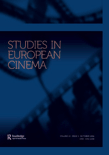
Studies in European Cinema
Enriching the Dialogue on European Cinematic PracticesStudies in European Cinema is an esteemed journal published by Routledge Journals, Taylor & Francis Ltd, focusing on the multifaceted realms of European cinema and its contextual relevance. With an ISSN of 1741-1548 and an E-ISSN of 2040-0594, this journal provides a dynamic platform for researchers and practitioners in the fields of Communication, Visual Arts, and Performing Arts. As reflected by its recent Scopus rankings, it holds a respectable position in the Arts and Humanities with an 84th percentile rank, indicating its significance and impact in the scholarly community. While not entirely open access, Studies in European Cinema seeks to foster critical discourse and analysis from 2004 to 2024, covering a broad spectrum of topics related to film studies, cultural representations, and the evolving narratives within European cinematic practices. Engaging with diverse theoretical frameworks, the journal aims to contribute to the vibrant dialogue surrounding European cinema, making it an essential resource for academics, filmmakers, and students alike who are passionate about exploring cinematic expression in a European context.

Transnational Screens
Illuminating Transnational Narratives in Visual CultureTransnational Screens is a premier academic journal published by Taylor & Francis Ltd, focusing on the dynamic intersections of visual arts, performing arts, and communication in a globalized context. Since its inception, the journal has garnered significant recognition, featuring in the Q1 category for Visual Arts and Performing Arts and Q3 for Communication as of 2023, reflecting its influential contributions to these fields. With a Scopus ranking placing it in the 78th percentile in Visual Arts and Performing Arts, this journal serves as a vital platform for researchers, professionals, and students aiming to explore the implications of transnational narratives in contemporary media and artistic practices. The journal is accessible to a diverse readership and promotes open dialogue through its commitment to publishing innovative and interdisciplinary research from 2020 to 2024. As a key resource for understanding the complexities of transnational screens, it invites submissions that push the boundaries of traditional scholarship and engage with pressing global issues through the lens of the visual and performing arts.
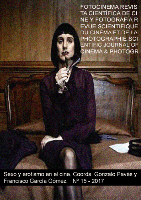
Fotocinema-Revista Cientifica de Cine y Fotografia
Unveiling the Artistry of Visual StorytellingFotocinema-Revista Cientifica de Cine y Fotografia is a leading open-access journal published by FOTOCINEMA since 2014, dedicated to the academic exploration of cinema and photography. Based in Spain, this journal serves as a vital platform for researchers, professionals, and students, fostering innovative discourse in the fields of Visual Arts, Performing Arts, and History. With an impressive Q2 rank in both History and Visual Arts, as well as a Q4 rank in Communication in 2023, Fotocinema reflects a commitment to high-quality scholarship, backed by Scopus rankings that highlight its growing influence within the academic community. By offering open access to its content, the journal ensures that significant research is available to a broader audience, encouraging collaboration and knowledge sharing across disciplines. As it continues its converged publication run from 2019 to 2024, Fotocinema stands at the forefront of cinematic and photographic studies, providing an essential resource for those dedicated to understanding the intricate relationships between visual media and society.
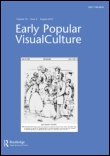
Early Popular Visual Culture
Transforming Perspectives on Visual Practices Across TimeEarly Popular Visual Culture, published by Routledge Journals, Taylor & Francis Ltd, is a pivotal academic journal dedicated to the interdisciplinary study of visual culture from historical and contemporary perspectives. Since its inception in 2009, this journal has carved out a niche within the academic landscape, achieving a notable Q2 ranking in Visual Arts and Performing Arts and Q3 in both Cultural Studies and History categories as of 2023. With an ISSN of 1746-0654 and E-ISSN of 1746-0662, it serves as a vital platform for scholars to disseminate cutting-edge research and critical analysis on visual phenomena that shape popular culture. The journal not only enhances scholarly discourse but also contributes significantly to the understanding of visual practices across different societies. Researchers, professionals, and students will find this journal invaluable for exploring the intricate interactions between visual culture and social contexts, thereby enriching their academic pursuits and insights.
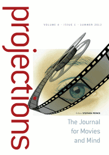
Projections-The Journal for Movies and Mind
Decoding the Cultural Impact of Cinematic NarrativesProjections: The Journal for Movies and Mind is a leading scholarly publication dedicated to exploring the intricate relationship between cinema, cognition, and culture. Published by BERGHAHN JOURNALS, this journal has made significant strides since its inception in 2015, achieving impressive rankings in its fields, including a Q1 classification in both Cultural Studies and Visual Arts and Performing Arts for 2023. With an ISSN of 1934-9688 and an E-ISSN of 1934-9696, Projections engages the academic community by delivering innovative research that scrutinizes how films influence and reflect human thought processes and societal structures. While it operates outside the Open Access model, the journal offers critical insights and diverse perspectives that are essential for researchers, professionals, and students alike. With its remarkable impact factor and solid reputation in the arts and humanities domain, Projections serves as an indispensable resource for those dedicated to understanding the psychological and cultural implications of cinematic narratives.
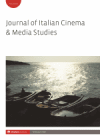
Journal of Italian Cinema and Media Studies
Advancing Critical Discourse in Italian Media StudiesThe Journal of Italian Cinema and Media Studies, published by INTELLECT LTD, is a premier academic journal dedicated to the exploration and critical analysis of Italian cinema and media. Since its inception in 2013, the journal has contributed significantly to the discourse surrounding the intersections of film, culture, and society, making it a vital resource for researchers and professionals alike. With an impressive span of converged years through 2024 and categorized in various quartiles, such as a Q1 ranking in Visual Arts and Performing Arts, the journal stands out in its field. Although it does not currently offer open access, the rigorous scholarship it publishes is accessible to a wide audience, contributing to ongoing dialogues in communication and cultural studies. The journal's impact is further reflected in its Scopus rankings, positioning it within the 64th percentile in Visual Arts and Performing Arts and the 21st percentile in Communication. As a critical avenue for scholarly exchange and creative inquiry, the Journal of Italian Cinema and Media Studies is essential for anyone engaged in the study of media, culture, and the arts.

Atalante-Revista de Estudios Cinematograficos
Fostering Innovative Research in Cultural Studies.Atalante-Revista de Estudios Cinematograficos, an esteemed open-access journal published by ASOC CINEFORUM L ATALANTE, has been a vital platform for scholarly discourse in the fields of Cultural Studies, History, and Visual Arts and Performing Arts since its inception in 2011. With a commitment to promoting innovative research and critical analyses, Atalante has earned a commendable reputation, achieving Q2 status in Cultural Studies and both Q1 rankings in History and Visual Arts for 2023. Based in Valencia, Spain, this journal not only serves as a conduit for scholars to disseminate findings but also provides unrestricted access to its contents since 2013, fostering a more informed and engaged academic community. With its diverse range of topics and the ability to access high-quality research at no cost, Atalante plays a crucial role in advancing the understanding of cinematic studies and its contextual significance in broader cultural narratives.